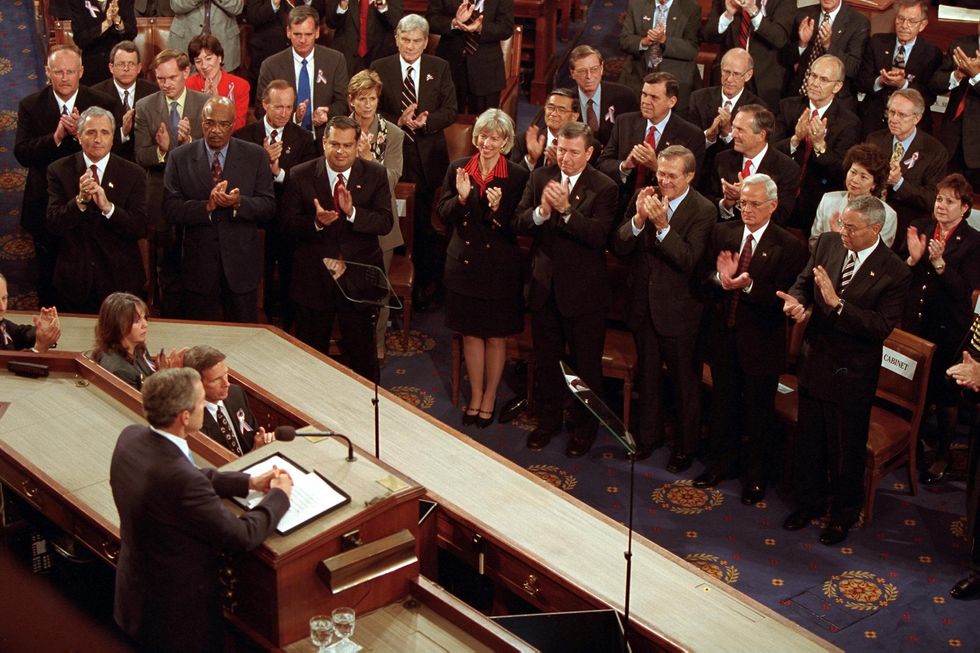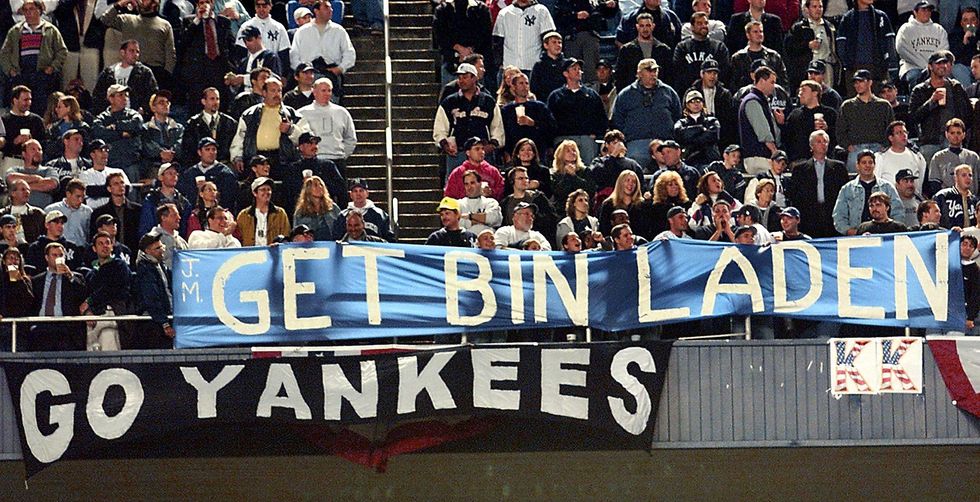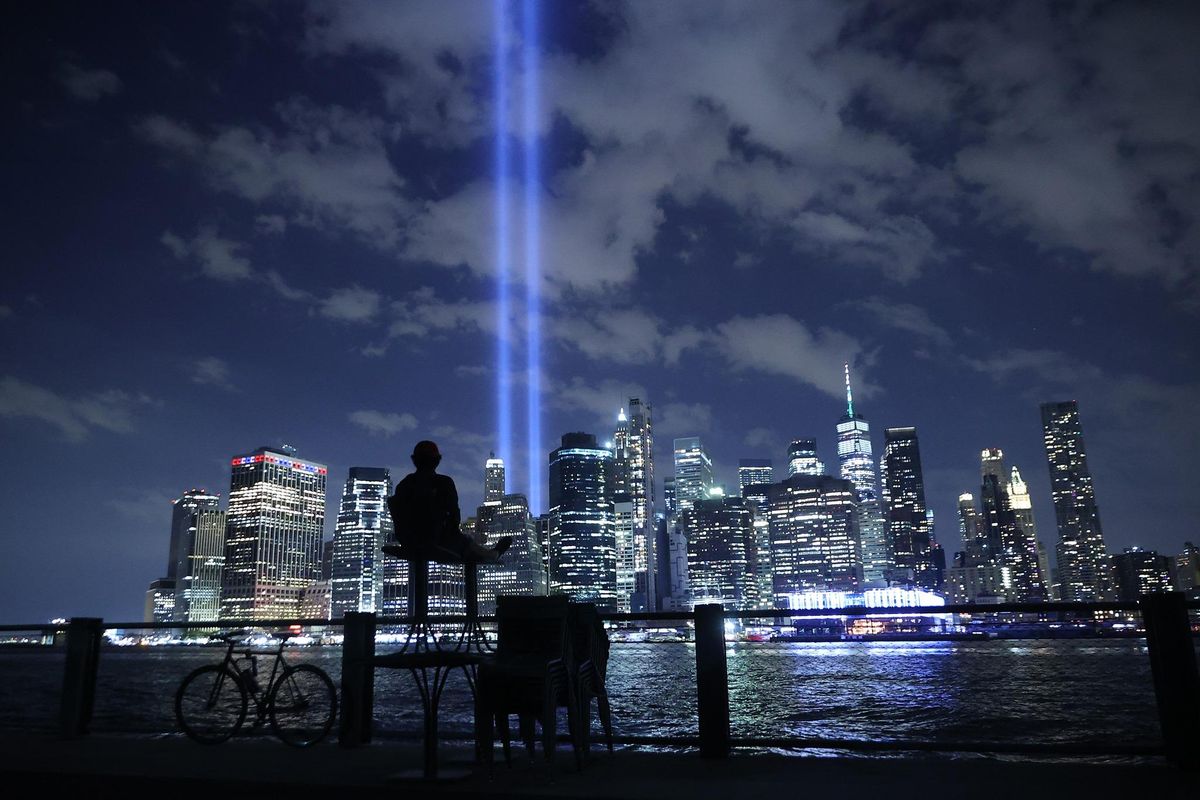Do you remember where you where and what you were doing the moment you learned of the terrorist attacks on September 11, 2001?
I remember. As do 93% of Americans aged 30 and older. I was in New York when the planes hit the towers, in my Midtown office at the time. I was shocked. I was despondent. I was angry. The moment it became clear it wasn’t an accident was a gut punch. As I explain in my Quick Take, it was a feeling that the world had changed inextricably even if I didn’t know exactly how.
Scared of the prospect of other attacks and mad as hell at the perpetrators, in the days and weeks that followed I wanted my country to respond forcefully. Like most Americans, I was on board when President Bush promised to bring those responsible for the worst attack on our homeland since Pearl Harbor to justice. That’s why we went to war in Afghanistan, with overwhelming public support and remarkable clarity of purpose. Right? Or where we after something else?
Want to understand the world a little better? Subscribe to GZERO Daily by Ian Bremmer for free and get new posts delivered to your inbox every week.
Let’s go back and look at the original justification for the invasion.
On October 6, 2001, President Bush issued an ultimatum to the Taliban: shut down al-Qaeda’s base of operations, close their training facilities, and hand over the terrorists, or “pay a heavy price.”
Had the Taliban complied with Bush’s demand and handed over bin Laden and his associates, that would have been the end of it. No case for war, no invasion. Indeed, as Joe Biden rightly put it, the US “had no vital national interest in Afghanistan other than to prevent an attack on America’s homeland and our friends”:
Remember why we went to Afghanistan in the first place? Because we were attacked by Osama bin Laden and al Qaeda on September 11th, 2001, and they were based in Afghanistan […] If we had been attacked on September 11, 2001, from Yemen instead of Afghanistan, would we have ever gone to war in Afghanistan—even though the Taliban controlled Afghanistan in 2001? I believe the honest answer is “no.”
Alas, the Taliban refused, so the US launched Operation Enduring Freedom with the stated goal of neutralizing a clear and present danger to America and inflicting pain on those who would had been responsible for it. The war’s aims were righteous but limited: to capture or kill Osama bin Laden, decimate al-Qaeda, and punish the Taliban for harboring terrorists. This mission was immensely popular: 93 percent of Americans supported it at its height, and only one representative—Congresswoman Barbara Lee—voted against the joint resolution of Congress to authorize the war.
 Members of Congress applaud President George W. Bush on Sept. 20, 2001 during joint session of Congress to address the 9/11 attacks. (Smith Collection/Gado/Getty Images)
Members of Congress applaud President George W. Bush on Sept. 20, 2001 during joint session of Congress to address the 9/11 attacks. (Smith Collection/Gado/Getty Images)
And boy, was it successful. By mid-2002, a true multilateral effort made up of a few thousand US troops supported by NATO allies and in partnership with the Northern Alliance had swiftly decimated al-Qaeda, rooted out the Taliban government, and forced bin Laden and Mullah Omar into hiding. By 2003, two-thirds of Americans judged that our response to 9/11 had made us safer against future terrorist attacks. Eight years later, in 2011, a clinically executed attack launched from Afghanistan would kill Osama at his compound in Pakistan. Perhaps most importantly, to this day the United States has not experienced another major foreign-directed terrorist attack on its soil.
In other words, the US accomplished what I—and the majority of the American people—thought we had set out to do. Al-Qaeda and the Taliban were punished, incapacitated, and deterred from committing or enabling further attacks on America. But if that’s the case, why is everyone and their mother judging the war to be a catastrophic failure?
The answer is mission creep. After the initial military success, generals and successive presidents from both parties shifted the goalposts and fatally expanded the scope of the war from counterterrorism to state- and nation-building. Incapacitation, punishment and deterrence were not enough for the foreign policy establishment—Afghanistan had to be rehabilitated, too.
This is not what the American people signed up for, as evidenced by the cratering public support post-2011. (I dare you to find me one soldier who enlisted not to avenge killed Americans or defend the homeland, but to empower Afghan civil society.) Since Vietnam, it’s been clear that the United States has neither the stomach nor the power to “fix” countries in the first place.
 New York Yankee fans hold up an anti-Osama bin Laden sign during a game against the Oakland Athletics on Oct. 10, 2001.(Timothy A. Clary/AFP via Getty Images)
New York Yankee fans hold up an anti-Osama bin Laden sign during a game against the Oakland Athletics on Oct. 10, 2001.(Timothy A. Clary/AFP via Getty Images)
The original mission was the only winnable mission. What followed was hopeless fantasy, a lost cause. Military force can do many things, but building state capacity and enduring stability is not one of them. Remaking poor and tribal Afghanistan into a democracy at gunpoint was always doomed to fail.
As the meaning of “victory” pivoted toward the impossible, public opinion soured, and the early successes were forgotten. The Bush administration bears the greatest responsibility for turning an easy win into a sure defeat, followed by Presidents Obama and Trump—both of whom acknowledged the overreach but lacked the courage to end it. As presidents go, Biden is least to blame—after all, he ended the war and was never a fan of nation-building.
Looking ahead, my biggest worry is that the instincts, ideologies, and interests that led to this bipartisan failure are still very much alive, vying for influence over America’s foreign policy. The difference is that the 2021 America is not 2001 America. Yes, the United States remains by far the most powerful country in the world. But the country is also more divided than ever. Our greatest weakness, and the number one limit to our power, is our internal disunity.
As we come together to honor the victims of 9/11 and mourn the lives lost in response to the attacks, we must remember this above all.
🔔 And if you haven't already, don't forget to subscribe to my free newsletter, GZERO Daily by Ian Bremmer, to get new posts delivered to your inbox.



















